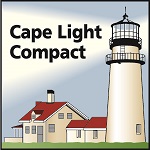 HYANNIS – In the movie, Little Fockers, family patriarch Jack Byrnes get into a knock-down, drag-out fight with his son-in-law Greg Focker and then immediately falls to the ground clutching his chest. Actor Robert De Niro played the moment with all the melodrama of a classic Hollywood version of a heart attack. But could this happen in real life?
HYANNIS – In the movie, Little Fockers, family patriarch Jack Byrnes get into a knock-down, drag-out fight with his son-in-law Greg Focker and then immediately falls to the ground clutching his chest. Actor Robert De Niro played the moment with all the melodrama of a classic Hollywood version of a heart attack. But could this happen in real life?
Yes, in fact it could, according to Hyannis cardiologist Nicholas Matas, MD.
“Vigorous exercise in people who are normally sedentary increases the risk of heart attack,” he said
Cardiologists have known for years that vigorous exertion of the type displayed in the movie as well as extreme emotion such as anger or grief can cause a heart attack. The INTERHEART Study published last fall in the journal Circulation showed that this is true in all regions of the world, in men and women and in all age groups. The case-controlled study included data from 52 different countries.
“There have been smaller studies over the years that have shown the exact same thing,” said Dr. Matas, who practices at Hatfield Cardiology in Hyannis. “What was different about this study was that the study encompassed many countries and really validated it across many populations.”
Studies like the INTERHEART Study run the risk of sending the wrong message, he said, especially when newspapers run overly dramatic headlines warning of the risk. He worries that people will decide not to exercise at all and exercise is an important component of heart health.
People who already regularly exercise are usually not at increased risk of heart attack from exertion, he said. The study is more pertinent to someone who is in their late 50s who has one or more of the risk factors of heart disease, who suddenly decides to play a game of full court basketball or climb a mountain. The other really dangerous activity is shoveling snow.
“Snow shoveling is a unique combination of isometric exercise of weight resistance because you are lifting heavy snow, aerobic exercise because you are out there getting your heart working with vigorous work, coupled with cold weather, which theoretically can cause coronary heart spasms. So it’s kind of perfect storm of three things all at once,” Dr. Matas said.
With that in mind, he doesn’t recommend vigorous shoveling to patients with heart conditions, even if they are stabilized, or to people who are out of shape.
Risk Factors
Dr. Matas lists the following risk factors for coronary heart disease:
- Being sedentary
- High blood pressure
- High cholesterol
- Diabetes
- Being overweight
- Smoking
- Family history of heart disease
- Age
For some reason, age is the one that surprises patients the most, Dr. Matas said. Most seniors who have lived a healthy life are shocked to learn they have coronary heart disease.
“Age is one of the most potent risk factors, particularly as we get older,” he said. “People need to know that as they age, their risk goes up, even in the absence of any other risk factor. That occurs not just with heart disease. That occurs with all diseases.”
Cardiologists use a risk calculator like the one put out by the American College of Cardiology or the Framingham Coronary Heart Disease Risk Score to assess the risk of heart disease. If you enter all the exact same information about the various risk factors like blood pressure and smoking and only change the age in the calculator from 30 to 60, the patient’s risk goes up six-fold from that one change alone, he said.
For middle-aged people who want to begin a new exercise program, but are afraid of a heart attack, a cardiac stress test isn’t a bad idea, Dr. Matas said. Even though the U.S. Preventive Task Force and the American Heart Association currently don’t formally recommend a routine screening stress test, he said an argument could be made for doing one in certain populations with one or more risk factors of heart disease.
“In the U.S. alone there are over a half a million patients every year that are diagnosed with coronary disease who have no symptoms at all,” he said.
As for the dangers of strong emotions, experiencing anger or grief is a normal part of life. To combat stress and negative feelings, Dr. Matas recommends yoga, meditation, and exercise. Yoga and meditation both lower blood pressure and all forms of physical exercise lowers stress hormones in your body, he said.
“We need to do things within a reasonable parameter based on your overall physical condition but the overriding message is that we don’t want you to stop exercising.”
























